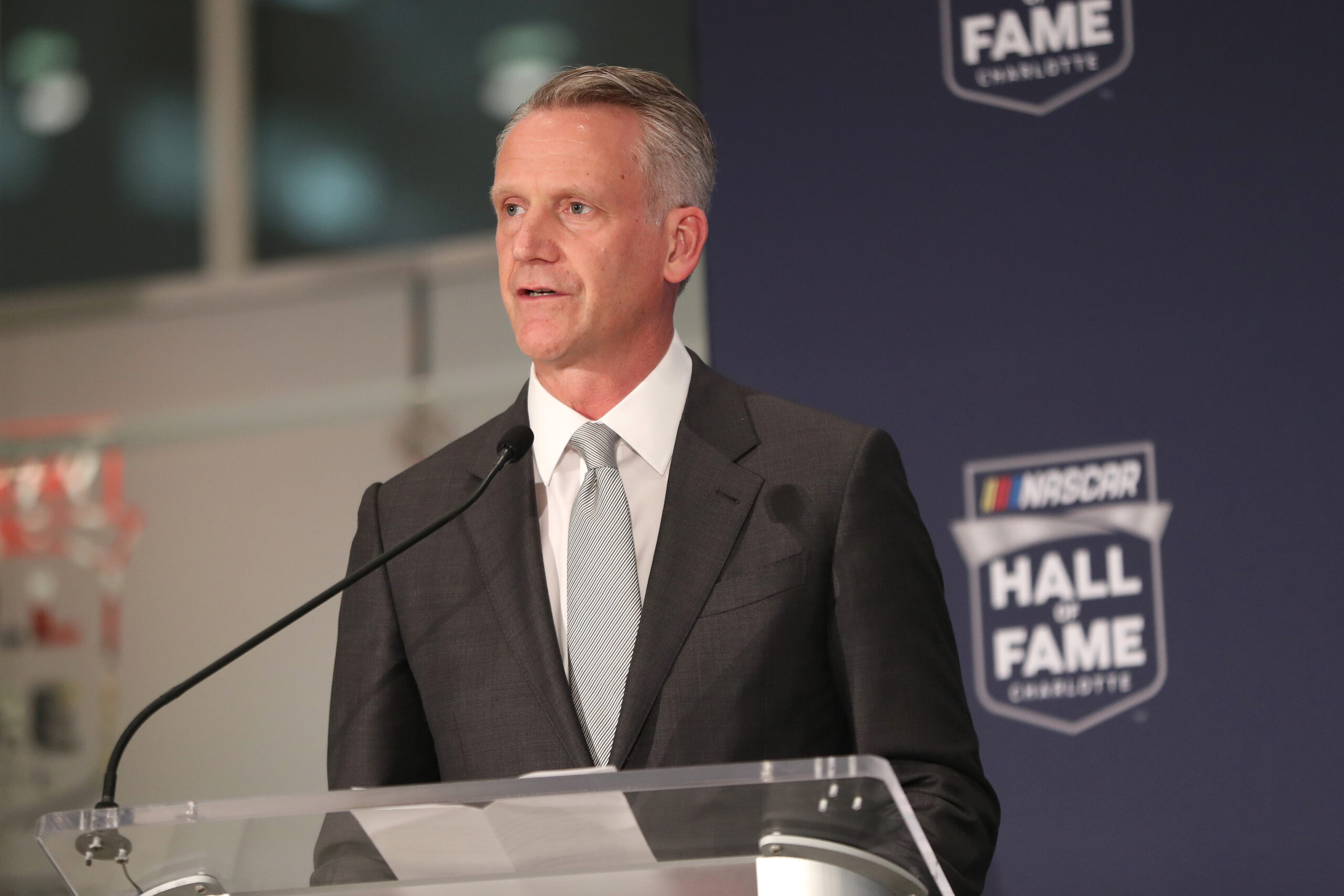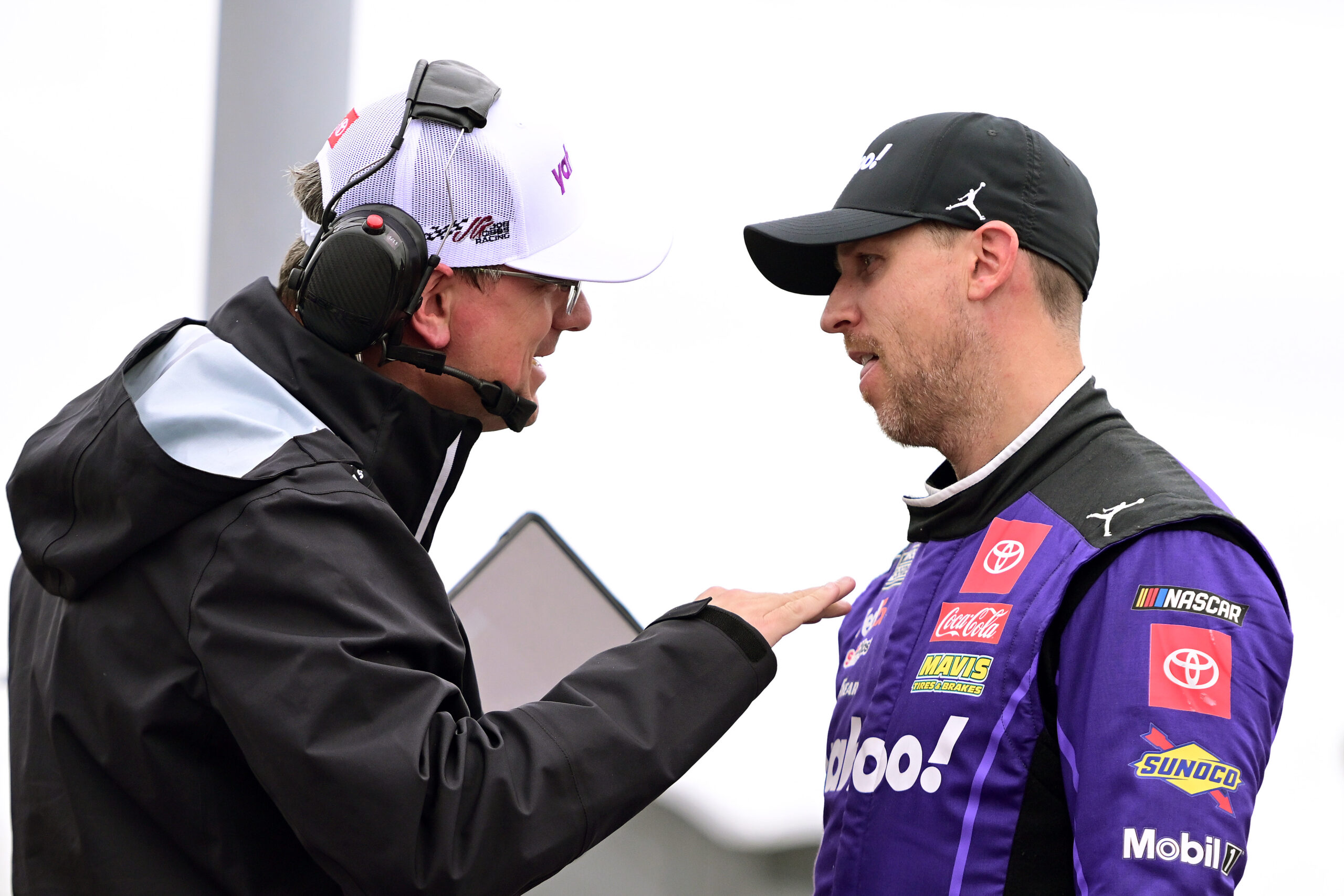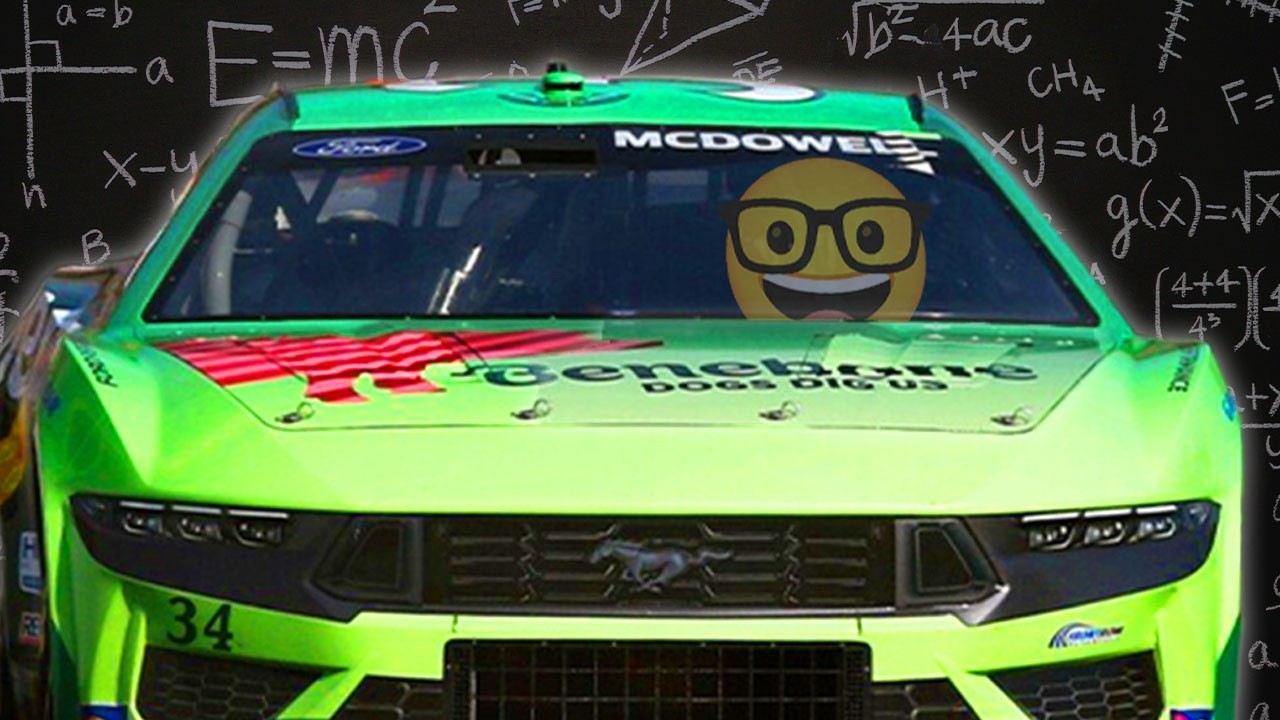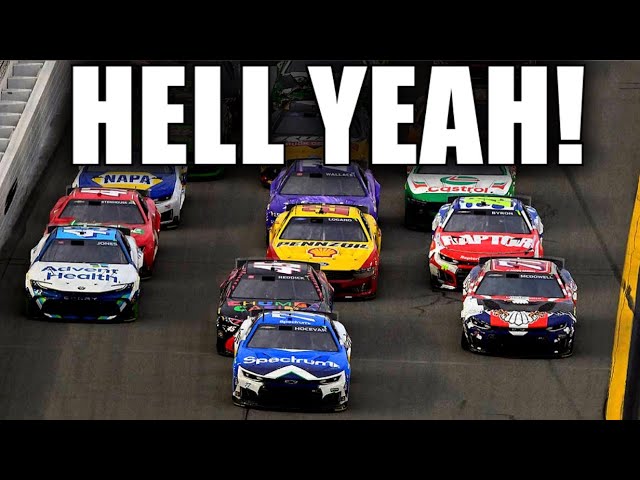
In a recent webinar, NASCAR President Steve Phelps discussed a wide-ranging variety of topics that got NASCAR fans talking. These are the 3 most controversial Steve Phelps comments from this recent webinar.
One of the things that fans and drivers have been continuously asking for is more horsepower, particularly on short tracks. Well, Steve Phelps made it very clear that adding horsepower was not in the cards for right now.
I don’t think the answer is more horsepower because more horsepower is expensive. If you ask a driver what’s going to solve it, they’re always going to say ‘Give me more horsepower.’ It’s a thing. I’m not a driver, but I’ve listened to enough drivers and that’s their solution. So the question is is that really what it is? I don’t know. I think there’s some gearing things that we’re looking at as well. Some shifting things.
Steve Phelps via NBC Sports’ Dustin Long
This quote made the rounds on social media, and plenty of fans were not happy with Phelps saying this. Avery Hage specifically said, “I am going to go insane”.

Plenty of drivers have come out and said that horsepower needs to be added to improve the racing product, particularly on short tracks. Kevin Harvick asked for 1000 horsepower on Twitter following the spring Martinsville race. Denny Hamlin discussed it as well.
However, Phelps is not convinced yet, and it seems that it all comes down to costs. He did mention that they are looking at shifting to improve the racing product. Time will tell how far that can go, but, it does not seem that everyone is totally convinced it will work.
On top of that, the quote makes Phelps look like he doesn’t listen to drivers. Yes, there are some cost complications, and Phelps has the responsibility to keep the sport profitable. However, he also has a responsibility to listen to drivers and their takes, and, he simply did not listen.
Another controversial aspect of modern NASCAR is the charter system. While it does give the teams something of value for their race teams, a charter, it also heightens the barrier of entry for other teams On top of that, the economics of the race teams are still not working out according to Phelps.
We are all in on the charter system…Our race teams by and large are losing money at the Cup level and that is something we need to solve for them. We can solve that with two key pillars. One is to make sure that they are getting additional revenue…The only way we can do that is to have increases in your media rights, which is what we are doing today…Secondly, and not small honestly, is some kind of cost containment.
Steve Phelps via SpeedSport‘s Mike Kerchner
There are two major things that Phelps brought up on this topic. First, the charter system is here to stay. Secondly, Phelps talked about the media deal as one way to increase how much money teams get. Third, he talked about potential cost containment.
While the charter system is controversial, more money for race teams means a more profitable sport. The teams have been vocal about making the charter system permanent, but, Brock Beard brought up an interesting point on social media. The only way that a charter has any cash value is when a race team sells the charter.

This explains why race teams are searching for more revenue to come in through other avenues. The charter itself does not make any money unless it is sold. The media rights deal is going to be an increase for race teams, but what about a cost cap?
A cost cap is a controversial topic in motorsports. Some fans such as Zachary Peters brought up how cost caps “Kill innovation” and that NASCAR is not going to give a larger share of profit to race teams.

Fans like to see innovation in motorsports, and, a cost cap takes away the ability for race teams to innovate. Less money in-house means that there is less room to try new things. Instead, it incentivizes them to stay within the box that NASCAR intended them to.
Now, the Next-Gen car was intended to make racing closer. It is essentially a “Spec” race car in a lot of aspects. While that narrows up the field, it also means that race teams cannot innovate like they once did because they have to work within the constraints of the car.
When it comes to the schedule, NASCAR has gotten quite aggressive with it in recent years. However, NBC Sports’ Dustin Long notes that Phelps may look at tracks with multiple dates.
He said that an emphasis remains on tracks to sell out, noting that if a track with two races does not sell out, the sport has shown it will move one of those events elsewhere.
Dustin Long
Phelps also mentioned that the schedule will stay the same length it currently is for the foreseeable future. That means that for new tracks to come in, some tracks need to step aside. The idea of tracks going down to one race date has been talked about the entire year. One example people point to is Pocono this year, which sold out.
The problem with wanting to go to more race tracks is that some race tracks need to lose a date for it to happen. With Phelps specifically mentioning tracks that do not sell out, tracks like Las Vegas, Kansas, and Richmond are worth looking at. None of those tracks sold out this year, and Las Vegas specifically had a very poor showing during the Playoffs.
This puts these types of tracks potentially under the microscope for the future. Could these be the first to go should more tracks join the Cup Series schedule?
Steve Phelps may have garnered some criticism for some of his comments made on Monday. However, they open up some interesting conversations about the future of NASCAR.

by Bryan Aguiar
Joe Gibbs Racing alleged that former competition director Chris Gabehart took a wide range of confidential team information regarding competitive performance data, engineering processes, financial records, and internal personnel details. But what exactly do the documents say was taken?
JGR sued Chris Gabehart alleging:
— Bob Pockrass (@bobpockrass) February 19, 2026
-he asked for authority over all racing decisions, was denied and asked to leave
-JGR did forensic analysis of Gabehart devices and alleges he synced personal Google Drive with JGR laptop and had photos of JGR setup info in folder called “Spire” pic.twitter.com/BvlBuP3JwL
JGR states it is entitled to damages believed to exceed $8 million, potentially subject to enhancement, along with attorneys’ fees. The organization is also seeking multiple forms of relief, expected to exceed that amount, as well as a cease-and-desist order to prevent any use or disclosure of what it describes as trade secrets.
You can learn more about the lawsuit itself, the circumstances surrounding Gabehart’s departure, and the broader allegations in the article linked below

by Bryan Aguiar
NASCAR isn’t nerdy enough. Not in a cringe way, not in a gimmicky way, but in a way that could quietly and organically grow the sport. After a Daytona weekend filled with spectacle and nostalgia, DJ Yee believes there’s a bigger opportunity sitting right in front of NASCAR, one that doesn’t change the racing at all but could completely change how fans engage with it.
Other leagues have turned analytics into conversation fuel. In baseball, stars like Aaron Judge and Shohei Ohtani aren’t loud personalities, but advanced metrics tell their story anyway. NASCAR, meanwhile, has mountains of telemetry data but shares very little of it in a meaningful way. Throttle traces, brake usage, steering inputs, tire wear models, fuel efficiency ratings, clean air percentages, and even a “positions above replacement” type metric, the possibilities are endless. None of it would intrude on the racing. Casual fans could ignore it. But hardcore fans, creators, and analysts would suddenly have tools to build deeper narratives around drivers and performance.
Watch Also

by Bryan Aguiar
For the first time in a while, it feels like NASCAR fans see a bigger light at the end of the tunnel. The start of 2026 has brought real optimism, from improved racing to sharper marketing, and even an 11 percent bump for the Daytona 500 to 7.5 million viewers. After a rough couple of seasons, that kind of stability matters. The question now is simple, is this momentum real or just a honeymoon phase?
There’s been a noticeable shift. The marketing feels more modern without feeling fake. Broadcasts are embracing energy and meme culture without losing authenticity. Social media efforts are spotlighting drivers and personalities in ways that echo how legends like Dale Earnhardt Jr., Jeff Gordon, and Tony Stewart once drew fans in. NASCAR’s identity has always been edge, personality, and grassroots simplicity, and recent changes feel closer to that core. But none of it matters without patience. Jaret believes the foundation may be stronger right now, but consistency will decide whether this is a spark or a true turning point.
Watch Also